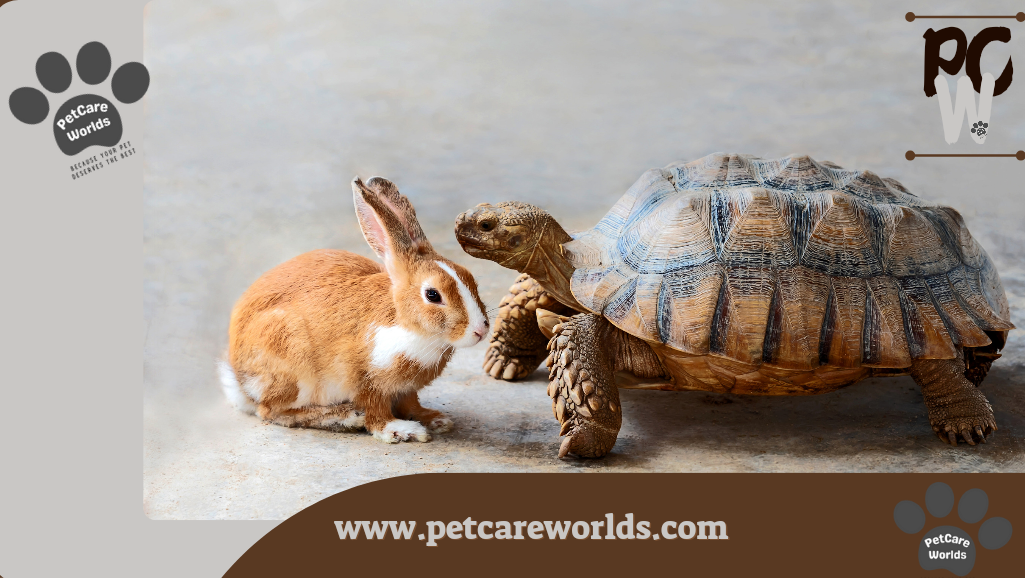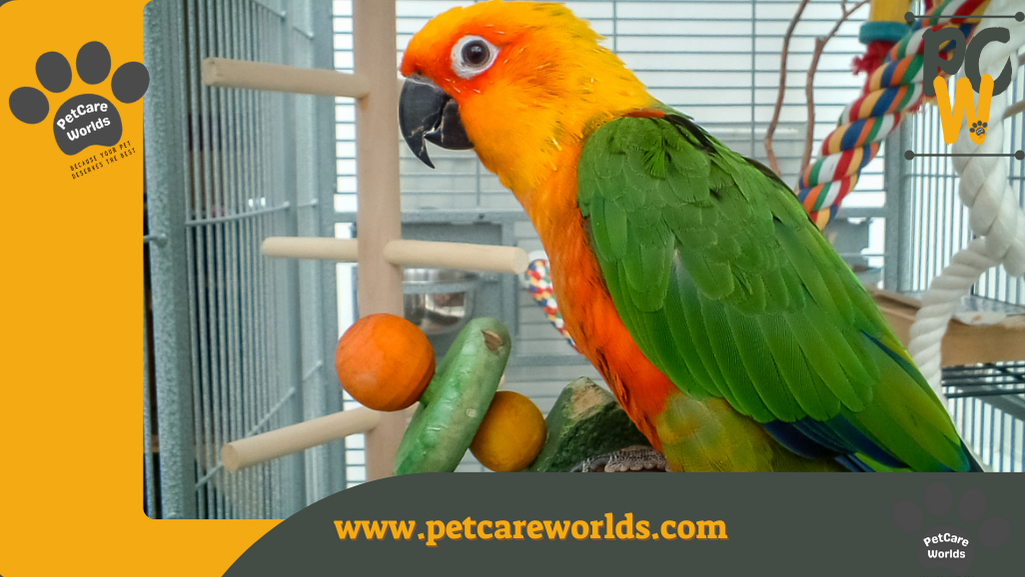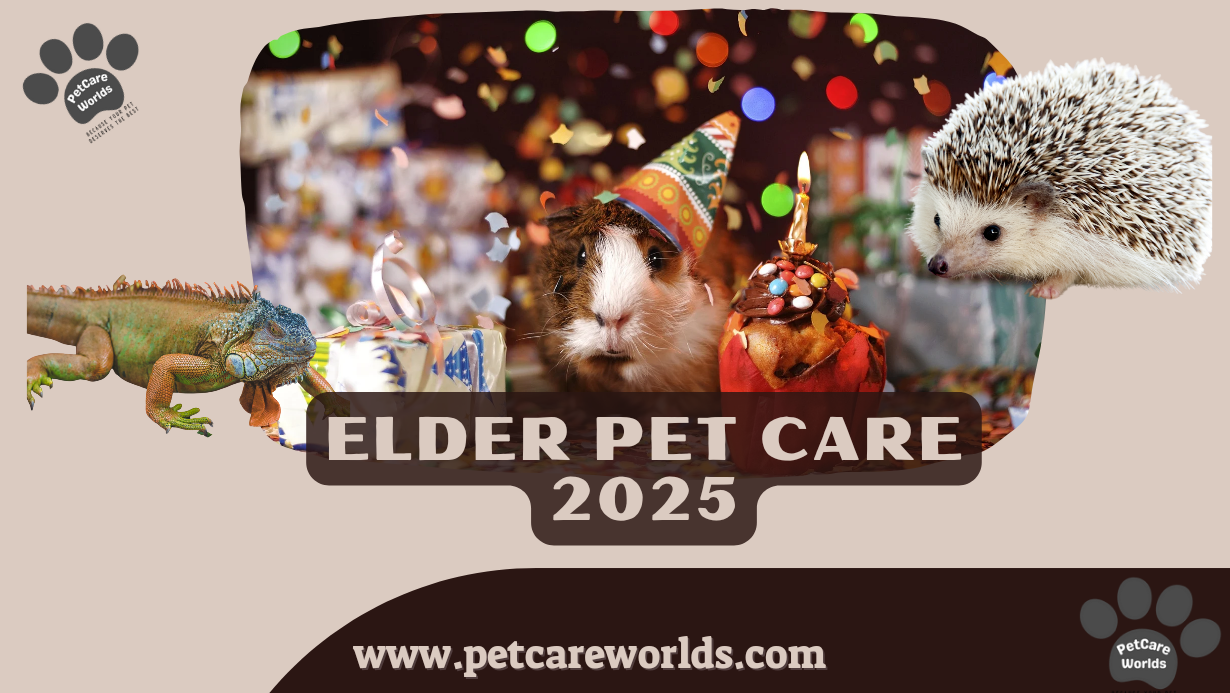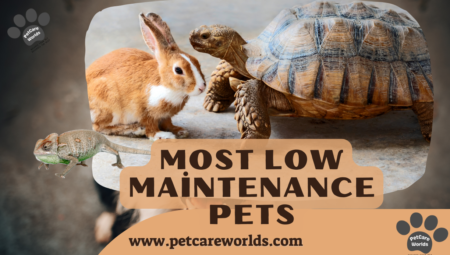Elder Pet Care – As our pets grow older, they begin to face challenges that many of us can relate to—slower movements, creaky joints, and a bit of a change in personality. But just like us, they deserve to live their golden years feeling loved, comfortable, and secure. Elder pet care isn’t just about providing food and shelter; it’s about understanding the unique needs that come with age and ensuring their health and happiness. In this guide, we’ll explore practical tips for making sure your senior pet has everything they need—from gentle exercise to regular check-ups, and even small changes at home that can make a world of difference. Elder Pet Care
Are you ready to give your aging pet the best care possible? Let’s dive in and discover how you can make their later years as wonderful as their earlier ones! Elder Pet Care
Elder Pet Care: Essential Tips for Your Senior Pet
Caring for an older pet requires more attention to their specific needs as they navigate the challenges of aging. It’s not just about managing their physical health, but also their emotional well-being. Senior pets, much like older humans, experience a range of physical and emotional changes. To ensure their comfort and quality of life, it’s important to provide a balanced routine that includes: Elder Pet Care
- Gentle Exercise: Regular, low-impact activity to maintain mobility and prevent stiffness.
- Veterinary Check-ups: Frequent visits to the vet to monitor health issues common in aging pets.
- Comfortable Home Adjustments: Simple changes to their environment, like softer bedding or ramps, to accommodate their changing needs.
- Emotional Support: Extra love, attention, and companionship to keep them happy and secure.
By being proactive in these areas, you can help your senior pet live their best life despite the challenges of aging. Elder Pet Care

Exercise and Movement
As pets age, exercise and movement become more crucial than ever. However, it’s important to strike a balance—too much activity can strain their joints, while too little can lead to weight gain and stiffness. By providing the right kind of exercise, you help your pet maintain their strength, flexibility, and overall well-being. Elder Pet Care
Importance of Exercise for Senior Pets
Regular exercise for senior pets offers numerous benefits, including:
- Maintaining Weight: Prevents obesity, which can lead to additional strain on their joints.
- Improving Joint Flexibility: Helps keep their muscles and joints limber, reducing stiffness.
- Boosting Mental Health: Light activity can stimulate their brain, preventing cognitive decline.
- Increasing Lifespan: Studies show that regular exercise can increase the life expectancy of senior pets.
However, it’s important to avoid overexertion. Too much exercise can cause more harm than good, especially if your pet has joint issues or arthritis. Elder Pet Care
Types of Suitable Exercises
When it comes to senior pets, the type of exercise matters. Here are some suitable options:
- Gentle Walks: Short, slow-paced walks on soft surfaces help maintain mobility without overloading the joints.
- Interactive Play: Gentle tug-of-war or fetch using soft toys allows for some fun without too much strain.
- Swimming: A low-impact activity that’s easy on the joints and helps with muscle strength.
- Short Play Sessions: Short bursts of play are better than long, exhausting exercise routines.
These activities can help keep your pet in good shape while avoiding unnecessary pressure on their body.

Joint Health and Supplements
As pets age, joint health becomes a significant concern. Joint pain and stiffness, especially from arthritis, are common in senior pets. To help manage these issues, consider: Elder Pet Care
- Glucosamine Supplements: Often recommended by veterinarians to support cartilage health.
- Omega-3 Fatty Acids: These help reduce inflammation and can improve joint mobility.
- Weight Management: Keeping your pet at a healthy weight reduces the strain on their joints.
Consult your vet to determine the best supplement plan tailored to your pet’s specific needs. Regular movement and the right supplements can go a long way in ensuring your senior pet stays comfortable and active. Elder Pet Care
Veterinary Check-Ups
Routine veterinary check-ups are a crucial part of senior pet care. As pets age, they become more susceptible to health issues, making regular vet visits essential to detect problems early. These check-ups help ensure that your pet’s health is continuously monitored and maintained. Elder Pet Care
Routine Health Check-Ups
A routine health check-up for senior pets should focus on the following: Elder Pet Care
- Comprehensive Blood Work: This helps identify any internal issues like kidney or liver problems.
- Dental Exams: Dental health can deteriorate with age, leading to issues such as gum disease and tooth loss.
- Heart and Kidney Function Tests: Common areas where age-related problems occur.
- Joint Assessments: To monitor the progress of arthritis or other mobility issues.
These visits allow your vet to catch potential health problems early, giving you more time to manage them effectively. Elder Pet Care
Specific Areas of Concern
As pets age, several health concerns become more prevalent. Some key areas to monitor include:
- Dental Health: Poor dental hygiene can lead to infections or tooth loss. Elder Pet Care
- Heart Health: Many senior pets suffer from heart conditions that need close monitoring.
- Kidney Function: Kidney disease is common in older pets and requires regular checks to avoid severe complications.
- Weight Management: Obesity can exacerbate joint pain and other health issues.
By addressing these areas regularly with your vet, you can help prevent or manage age-related diseases.
Arthritis: Prevention and Management
Arthritis is one of the most common issues in senior pets. Managing it involves:
- Early Detection: Look for signs of stiffness, limping, or reluctance to move.
- Medication: Nonsteroidal anti-inflammatory drugs (NSAIDs) can help manage pain.
- Joint Supplements: Glucosamine and chondroitin can provide support to deteriorating cartilage.
- Physical Therapy: Some pets benefit from controlled movements and stretching exercises.
A proactive approach to arthritis can make a significant difference in your pet’s mobility and comfort.

Home Adjustments
Creating a senior-pet-friendly home is essential to help your aging pet live comfortably. Small adjustments can go a long way in reducing strain and ensuring they’re comfortable in their environment.
Making Your Home Senior-Pet Friendly
Here are some ideas for making your home more accessible and comfortable for your senior pet:
- Add Ramps or Stairs: If your pet struggles with stairs, providing ramps can reduce strain on their joints.
- Non-Slip Rugs: This helps prevent slips and falls, especially on smooth floors.
- Quiet, Comfortable Spaces: Designate a calm, safe area where your pet can rest undisturbed.
These changes will help create an environment that accommodates your pet’s age-related limitations.
Comfortable Bedding
For older pets, comfort is key when it comes to rest. Choose bedding that supports their aging bodies:
- Orthopedic Beds: These provide extra support to relieve pressure on joints and bones.
- Memory Foam: Memory foam beds contour to their body, offering relief for aching muscles and joints.
- Easily Accessible: Make sure the bed is low enough for your pet to get in and out of without difficulty.
A cozy, supportive bed is essential for a senior pet’s health and happiness. Elder Pet Care
Accessible Food and Water Bowls
As pets age, their mobility may decrease, making it harder to reach food and water. Consider:
- Elevated Bowls: These reduce the strain on their neck and joints.
- Easily Reachable Locations: Place food and water bowls in locations that are easy for them to access without having to strain.
These simple changes ensure that your pet can eat and drink comfortably.
Adjusting for Mobility Challenges
As pets age, their movement can become more restricted. To help them move around the house, consider:
- Ramps for Stairs: If your pet struggles with stairs, a ramp can help them access different levels.
- Furniture and Obstacles: Minimize obstacles that could cause tripping or difficulty in movement.
These adjustments will help your pet stay mobile and independent for as long as possible. Elder Pet Care
Social Needs
As pets age, their emotional and social needs become just as important as their physical care. Senior pets require more attention, love, and companionship to feel secure and happy. Elder Pet Care
Emotional Support and Companionship
Older pets thrive on affection and attention from their owners. Key considerations include:
- More Time Together: Spend extra time cuddling or playing with them to provide emotional comfort.
- Consistency and Routine: Keeping their routine stable helps them feel secure and confident.
Showing them love and companionship reduces feelings of anxiety and isolation in their later years.
Benefits of Spending Quality Time
Spending quality time with your senior pet has numerous benefits:
- Bonding: Strengthens your relationship and helps them feel connected to you.
- Reduced Anxiety: More attention helps reduce feelings of stress or confusion.
- Mental Stimulation: Engaging activities, like puzzle games or short walks, help keep their mind sharp.
Investing time in your senior pet’s well-being provides them with the comfort and security they need.
Recognizing Behavioral Changes
As pets age, their behavior often changes. Recognizing these shifts can help address health issues early. Watch for:
- Changes in Eating or Drinking Habits: A decrease in appetite or water intake could signal health concerns.
- Altered Activity Levels: If your pet suddenly becomes more lethargic or agitated, it may indicate pain or discomfort.
- Behavioral Shifts: Increased anxiety, confusion, or aggression could be signs of cognitive dysfunction or pain. Elder Pet Care
Being aware of these changes helps you take the necessary steps to ensure your pet’s comfort and well-being.
Elder Pet Care – Table
Providing elder pets with the right care requires attention to their physical, emotional, and social needs. Simple adjustments, regular veterinary check-ups, and tailored exercises can significantly improve their quality of life.
| Section | Details |
|---|---|
| Introduction | Overview of elder pet care, importance of addressing specific needs as pets age, and the benefits of providing a comfortable and supportive environment. |
| Exercise and Movement | Exercise becomes increasingly important for senior pets, but it needs to be tailored to avoid strain. Gentle, low-impact exercises like walks and swimming are recommended. |
| Importance of Exercise for Senior Pets | Regular exercise helps maintain weight, joint flexibility, mental health, and overall longevity. Overexertion should be avoided. |
| Types of Suitable Exercises | Gentle walks, swimming, interactive play, and short play sessions are ideal for senior pets to keep them active without overtaxing their bodies. |
| Joint Health and Supplements | Joint health issues like arthritis are common in older pets. Supplements like glucosamine and omega-3 fatty acids help with mobility and reduce inflammation. |
| Veterinary Check-Ups | Regular vet check-ups are essential for monitoring the health of aging pets, catching issues early, and keeping them comfortable. |
| Routine Health Check-Ups | Regular check-ups including blood tests, dental exams, and joint assessments are crucial for detecting issues early and managing health problems. |
| Specific Areas of Concern | Common concerns for senior pets include dental health, heart and kidney function, and arthritis. Regular monitoring of these areas is essential. |
| Arthritis: Prevention and Management | Early detection, medication, joint supplements, and physical therapy can help manage arthritis and keep senior pets mobile and comfortable. |
| Home Adjustments | Making simple changes at home can significantly improve the quality of life for senior pets, from providing ramps to soft, accessible bedding. |
| Making Your Home Senior-Pet Friendly | Adjustments such as ramps, non-slip rugs, and quiet spaces for rest make it easier for senior pets to navigate the house comfortably. |
| Comfortable Bedding | Providing orthopedic beds, memory foam cushions, and easily accessible sleeping spots ensures that senior pets get the rest they need without discomfort. |
| Accessible Food and Water Bowls | Elevated or easily reachable bowls help senior pets access their food and water comfortably without straining their joints. |
| Adjusting for Mobility Challenges | Ramps for stairs, minimizing obstacles, and furniture adjustments help aging pets maintain mobility and independence. |
| Social Needs | As pets age, their emotional and social needs grow more important. Spending quality time and providing companionship help them feel secure and loved. |
| Emotional Support and Companionship | Spending extra time with senior pets provides emotional comfort and reduces anxiety, ensuring they feel loved and connected. |
| Benefits of Spending Quality Time | Spending time together helps strengthen bonds, reduce anxiety, and provide mental stimulation to senior pets, keeping them engaged and happy. |
| Recognizing Behavioral Changes | Changes in eating habits, activity levels, or behavior could indicate health concerns, and recognizing these signs helps provide timely care. |
Frequently Asked Questions (FAQ) about Elder Pet Care
1. What is the best type of exercise for senior pets?
Answer: For senior pets, low-impact activities like short walks, swimming, and gentle play are ideal. These exercises help maintain mobility without straining their joints. Always consult your vet before starting any new exercise routine. Elder Pet Care
2. How often should I take my senior pet to the vet?
Answer: Senior pets should have regular check-ups every 6 months. These visits help monitor their health and catch any potential issues early, such as dental problems, arthritis, or heart conditions.
3. What are common health concerns for senior pets?
Answer: As pets age, common health issues include arthritis, dental disease, heart problems, kidney disease, and obesity. Regular vet visits and proper care can help manage these conditions.
4. How can I make my home more senior-pet friendly?
Answer: You can make your home more accessible by adding ramps or stairs, using non-slip rugs, and providing comfortable, orthopedic bedding. Ensure food and water bowls are easily reachable for your pet. Elder Pet Care
5. What supplements should I give to my aging pet?
Answer: Joint supplements such as glucosamine and chondroitin can help manage arthritis. Omega-3 fatty acids support joint health and reduce inflammation. Always consult your vet for personalized recommendations.
6. How can I tell if my pet is in pain?
Answer: Signs of pain in senior pets include limping, difficulty getting up, changes in behavior, reluctance to exercise, and excessive whining or licking at certain areas. If you notice these signs, consult your vet for further evaluation.
7. How can I support my senior pet emotionally?
Answer: Spend quality time with your pet, provide regular affection, and ensure they feel secure in their environment. Senior pets benefit greatly from companionship and a consistent routine.
8. Can senior pets still enjoy playtime?
Answer: Yes! While playtime may need to be adjusted for their physical limitations, many senior pets still enjoy interactive toys, short play sessions, and bonding activities with their owners.
9. Should I adjust my senior pet’s diet?
Answer: Yes, senior pets may require a special diet to maintain a healthy weight and manage age-related conditions. Look for foods designed for senior pets, and consult your vet for guidance on portion control and dietary needs.
10. How can I manage my pet’s arthritis at home?
Answer: Manage arthritis by providing soft bedding, using joint supplements, and encouraging gentle exercise. Physical therapy and weight management can also help reduce the strain on your pet’s joints.
Conclusion
Elder Pet Care is essential for ensuring your senior pet’s comfort and well-being. Proper exercise, regular vet visits, and a supportive home environment can greatly enhance their quality of life.





